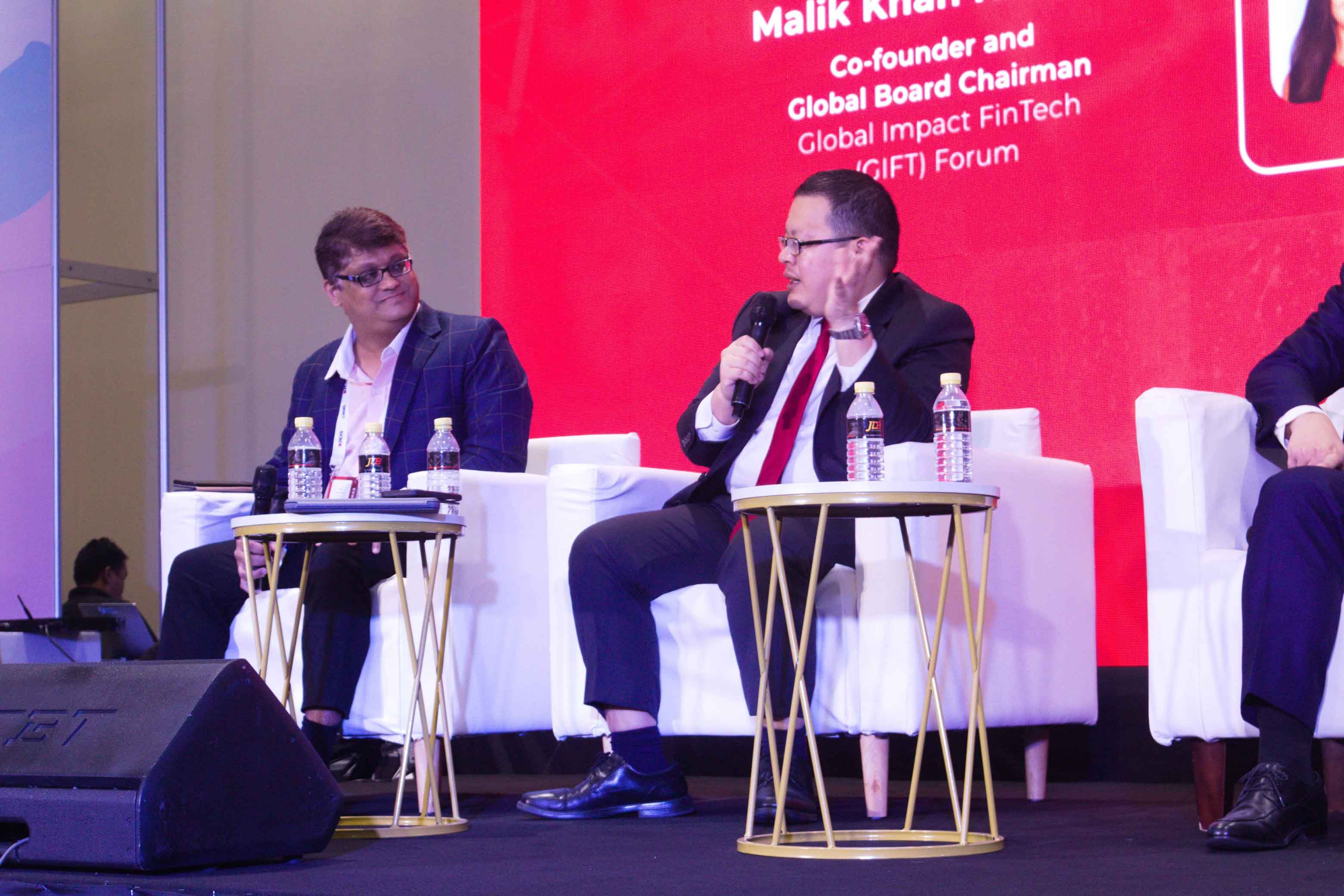|
Getting your Trinity Audio player ready...
|
Collaboration among like-minded countries, gathering investments, and launching projects on exploring and developing blockchain solutions are not the only ingredients to achieve mass adoption of the emerging technology, a point reiterated by key industry players during the first day of the AIBC Asia Summit held at the SMX Convention Center in Pasay City, Philippines.
The national government of the Philippines, in partnership with the private sector, has been ramping up efforts to prepare the country for a digital revolution—a feat being attempted by economies worldwide. But according to a panel at the AIBC Asia Summit, while the Philippines can become a powerful player in the blockchain industry, there is a need to educate locals and the government about the technology before the country can harness its full potential.
Fintech Alliance Chairman Lito Villanueva said considering that it is only just recently that the Philippines joined the blockchain race, it has taken great leaps in the space but admitted that the country is still far from reaching its projections.
The adoption of digital currencies from Play-to-Earn games like Axie Infinity has opened the pathway for the Philippines to welcome blockchain tech.
Villanueva, who is also the Executive Vice President and Chief Innovation and Inclusion Officer for RCBC, said the missing piece to spur mass blockchain adoption is prioritizing education.
“What is really critical is education,” he noted, stressing that this should not be limited to ordinary Filipino citizens but be expanded to include other stakeholders, such as regulators and the government. Villanueva added that education is also a primary solution to debunk misconceptions about the technology, whose integrity has been questioned over the recent collapses of major exchanges and the crypto winter.
To put it simply, to achieve mass blockchain adoption, a whole-of-government approach is needed.
Business Development Lead at nChain Stephanie Tower backed Villanueva’s statement, noting that educating the government on emerging technologies will help drive the needed policies to help the industry grow.
The SEC at the heart of change
Building on Tower’s remark on law enforcement, moderator Malik Khan Kotadia, Co-founder and Global Board Chairman of the Global Impact FinTech (GIFT) Forum, put Securities and Exchange Commission (SEC) Commissioner Kelvin Lester Lee in the spotlight, grilling him on what the state-backed agency’s considerations on developing frameworks for the industry.
“The number one priority for the SEC is investor protection, consumer protection,” Lee pointed out before enumerating the need to ensure that adopting emerging technologies and crafting regulatory policies guarantee financial stability.

“Making sure that whatever comes in, whatever innovation—blockchain-related or not—would not cause any instability to the market. If possible, it [should] help the market move forward,” he said.
Lee added that he has reservations about whether or not there is a need to regulate the industry.
“Of course, whether or not to regulate it is based on the first two points I’ve made—consumer protection/investor protection and financial stability.”
Recently, the SEC unveiled its plans to launch its amended digital asset framework before the end of the year as part of its measures to safeguard investors in the country.
Surviving the ‘crypto winter’
The “crypto winter” has laid waste to the digital asset industry, with big exchanges and enterprises suffering huge blows that forced them to slash their workforce and, worse, cease operating.
But while the event may be seen as a dark history in the digital asset sector, Tower said it also did the industry good.
“Well, the good thing that happened during the crypto winter was that there was an explosion of use cases and applications that were built that is beyond tokens, that is beyond fintech,” she said.
The Philippines, which was not spared from the impacts of the crypto winter, leveraged this by exploring existing use cases and applications and developing new ones that would help provide solutions that would not only target its fintech industry.
“I think that is the importance in terms of mainstream adoption because as you know—as we all know—the Philippines is one of the [biggest] cryptocurrency adopters in the world, but it’s very specific to gaming and entertainment and tokens,” Tower stated.

“But if we shift that into actual use cases, like applications, that would really benefit us as a nation, from agriculture, from IoT devices powered by blockchain technologies to disaster management systems—those things and incentivizing people through these applications, I think that’s where we’re heading,” she continued.
nChain has been supporting the Philippine government in creating solutions that would help not only with the country’s digitalization but would address the daily woes that common people on the islands face.
Meanwhile, Kotadia asked Villanueva, who has extensive knowledge in the fintech industry, why the Philippines is having difficulty adopting blockchain technology despite key industry players’ claims of its powerful uses.
Villanueva noted that, apart from the recent collapses, the slow blockchain adoption in the Philippines could be due to existing use cases, which various industries are looking into before making the jump.
He added that the absence of a blockchain adoption roadmap also contributes to the slow progress.
Watch: The Philippines is ready for blockchain tech, nChain Chairman Stefan Matthews says
Recommended for you
British lawmakers of the parliamentary national security committee have called for a temporary ban on political parties receiving donations in
Circle (NASDAQ: CRCL) soared in 2025 thanks to U.S. ‘regulatory clarity,’ but can this momentum survive a ban on crypto

 02-26-2026
02-26-2026 




